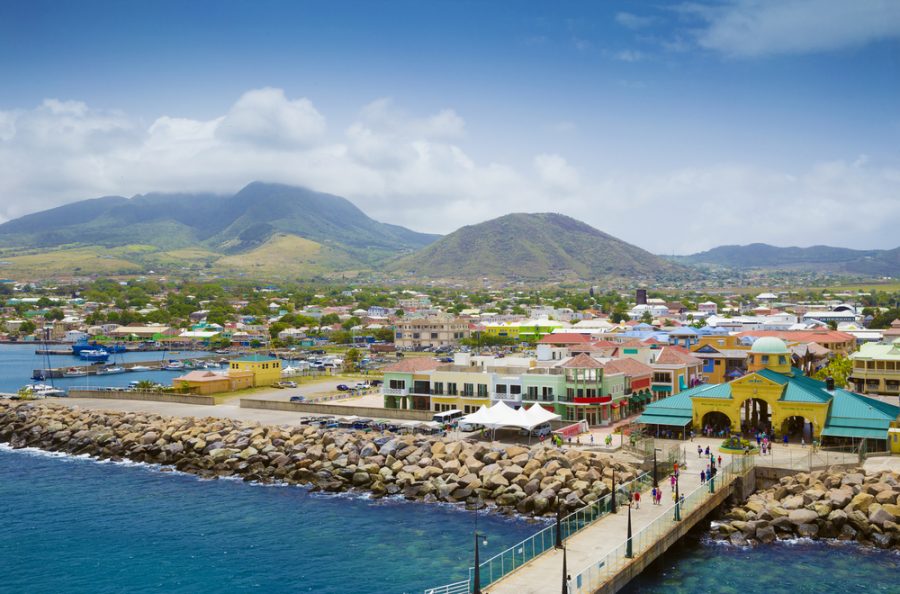The Twin island of St Kitts and Nevis is the birthplace of citizenship by investment program in 1983 and is one of the most popular platinum standard CBI schemes in the Caribbean. The population of Federation of St Kitts and Nevis as of 2017 is around 55,300.
According to recent approximate figures, the CBI program has raised $1.5 billion dollars for St Kitts and Nevis in the past ten years. This is more than the 2017 GDP of St Kitts and Nevis of $945 million
In 2018, The Prime Minister of St Kitts announced that St Kitts and Nevis has issued around 16,500 passports under the CBI program. This means one third of st kitts population are Economic or CBI citizens. This also means one out of three SKN citizen is an economic citizen. As with more passports issued every year, we estimate soon there will be more CBI citizens among the population.
Comparing St Kitts with Antigua, according to official figures, Antigua’s CBI program received 1547 applications since the launch of the scheme. The report does not specify how many passports issued under CBI scheme. Assuming on average 3 family members per application (investor + spouse + child), we estimate some 4500 passport must have been issued. Still this is only a quarter of passports issued by St Kitts and Nevis. In 2018, Antigua’s population is approximately 100,000 twice that of SKN. This means only 4.5% of Antigua’s population are CBI citizens.

The CBI citizens also form an interesting class of diaspora population most of whom live outside the country.
The St Kitts CBI scheme also gained more popularity after the government decided to cut prices from $250,000 to $150,000 after the Hurricane season in 2017. The Government also reduced real estate investment to $200,000 to boost the property sector in St Kitts and Nevis.
Tourism and Travel has a large economic impact on St Kitts, receiving large number of travellers, who mix with the local population. According to World Travel and Tourism Council, the direct contribution of Travel & Tourism to GDP was XCD 169.2mn (USD 62.7mn), 6.6% of total GDP in 2017 and is forecast to rise by 3.0% in 2018, and to rise by 5.8% pa, from 2018-2028

In 2018, this is expected to grow by 2.4%, and the country is expected to attract 120,000 international tourist arrivals.
By 2028, international tourist arrivals are forecast to total 212,000, generating expenditure of XCD647.9mn, an increase of 6.3% pa.





